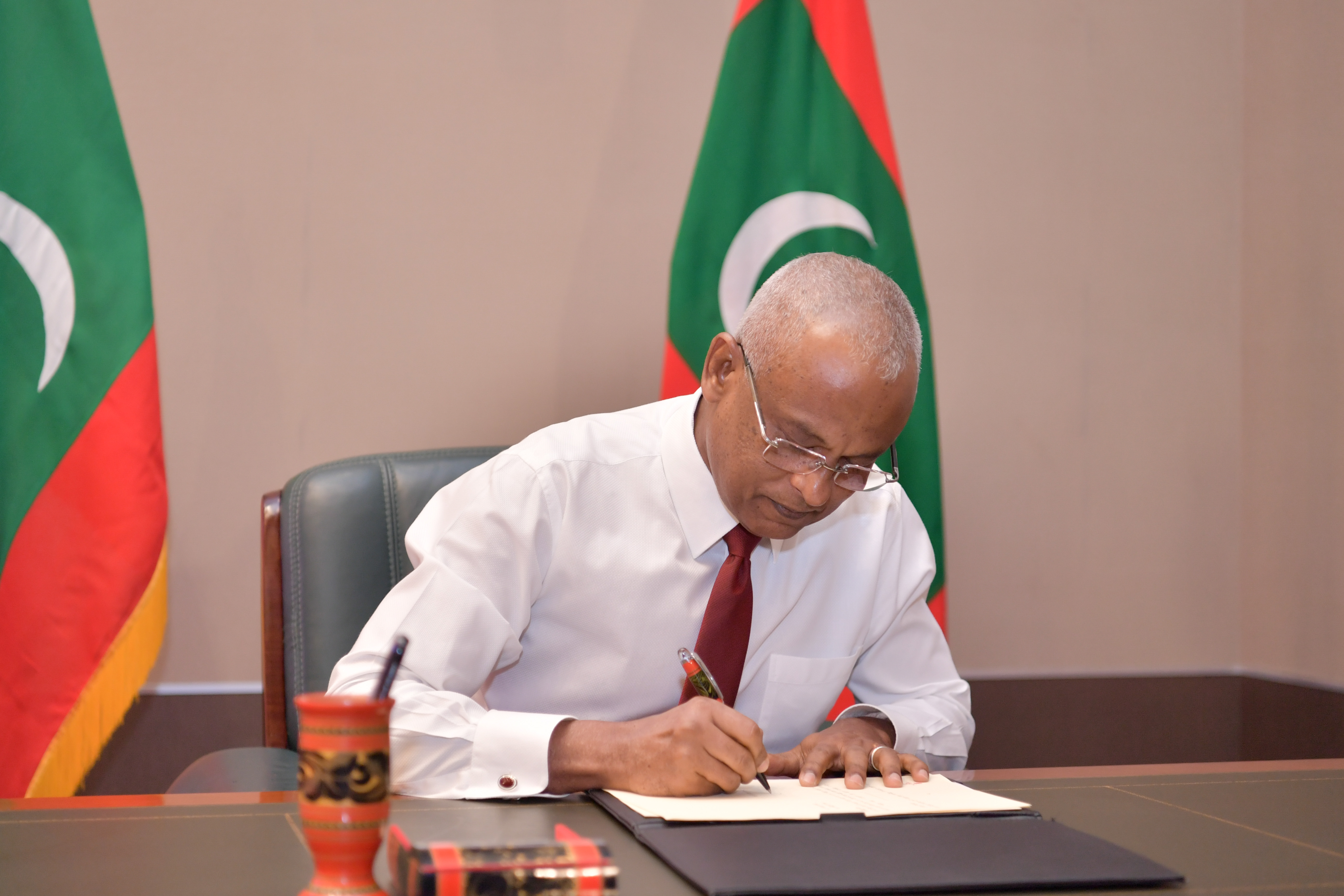Male’, Maldives – President Ibrahim Mohamed Solih has ratified the second amendment to the Human Rights Commission Act, third amendment to the Criminal Procedure Act and the sixth amendment to the Employment Act, on Tuesday.
The second amendment to the HRCM Act was passed by Parliament on 6 September 2020, at the 33rd sitting of its second session, which adds safeguards to prevent corruption within the Human Rights Commission of the Maldives (HRCM) by mandating that all appointed individuals must declare their assets, ensuring that they cannot unduly benefit from their position or exercise undue influence. It further delineates clear ethical guidelines for members to abide by.
The third amendment to the Criminal Procedure Act had been earlier passed by the People’s Majlis at the 33rd sitting of its second session this year, on September 6 2020.
The main purpose of this legislation is to address obstacles that prevent the effective enforcement of the Criminal Procedure Act. It does this by adding additional enforcement mechanisms to the main Act.
Further, under the amendment, important new provisions have been added to the Act. This includes delineating rape and sexual abuse of children as serious criminal offenses.
The sixth amendment to the Employment Act, which was also ratified on the same day, stipulates several provisions to protect the rights of employees, such as regulations making it compulsory for all employers to provide a signed copy of the employment agreement to all employees. It further stipulates that all the employers must provide signed employment agreements to all employees within 3 months of the amendment coming into force.
The amendment, however restructured the 30 days of paid sick leave granted to all employees, hereafter allowing employees up to two consecutive days (15 days annually) of paid sick leave without providing a medical certificate.
It further directs the relevant Cabinet Minister to determine and implement a minimum wage for all employees in the Maldives. The Cabinet Minister is required to consult the ‘Minimum Wage Advisory Board’ – provisions for the creation of the board and its mandate are also included in the amendment.
Other provisions in the amendment include setting a ceiling for the numbers of foreign workers from each country; provisions for prioritising Maldivians for employment and training opportunities; and standards for accommodations and living conditions provided by employers.
The amendment was passed by Parliament on Sunday, 06 September 2020, at the 33rd sitting of their second session this year.
Following ratification, all amendments have been published in the Government Gazette.
Source: President’s Office





